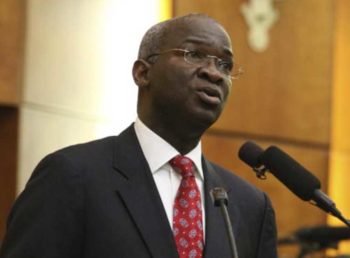
The most crucial ingredient to the growth and development of a nation, arguably, is the human capital. Next to human capital will probably be state-of-the-art infrastructure that supports economic activities. A very important infrastructural component is power supply which has remained the energy behind industrialisation. Even in the biblical narrative of how the Supreme Being manufactured the world that we live in today, the first infrastructure deployed was power. Without sounding sycophantic, I really think Nigerians should be commended for how far we have sustained our society in all facets without adequate power supply. Many industrialised nations will not be able to survive our predicament.
The power sector in Nigeria is probably the most difficult mathematical equation that has defied all mathematical formula. To start narrating how much has been spent by different administrations and the number of probes that have been conducted on the sector is akin to narrating how the Israelites journeyed from Egypt to the Promised Land. What is pertinent now is that there is an “oga at the top” who created the impression of owning the magic wand like the Greek god that will solve our power problems. Afterall, the former governor of Lagos State, now the Minister of Power, Works and Housing, declared that “any serious government will fix power in six months”. He predicated his assumption on the simple analysis of aggregating the energy produced by all the generators in Nigeria to power the economy. Well, now we know that just because it appears simple to play the tiny leather ball into an open wide net does not mean there is no technique and strategy to it.
Power supply in Nigeria today has not improved. The last figures released show that the installed capacity is still around 6000 megawattsbut actual generation is between 3000 and 3,500 megawatts. This has been the case for as long as I remember. Yet, experts have estimated Nigeria’s power need at 60, 000 megawatts. The disturbing aspect of the current morass is the inactivity that has characterised the power sector lately. No one really knows what is happening and the strategy of the government to ensure adequate and constant electricity supply. Rather, we have been told about how the former administration hurriedly reduced electricity tariff for political exigencies and how all the previous administrations since 1999 have spent 11trillion on the power sector with no visible result obviously. Like I stated earlier it is completely unnecessary to expound on the money spent on the power sector under the past administrations. We know what we know already.
Earlier this year we were told that the power situation was abysmal because of the activities of the Niger Delta militants who were breaking pipelines, disrupting gas supply to the power plants. This is September and there is a relative cease in militant activities in the region, yet improvement in power supply is still a wish for Nigerians. The reasons for the unfortunate power situation in the country are known to many. We do not need anyone to reiterate them for us. What is needed now is for the government to provide a clear strategy that will ensure that the country experience uninterrupted power supply. There are many options we can tap into as a nation – solar, coal, wind, and the gas-powered turbines that we already have. The strategy should also be one that will address fundamental issues with the privatisation process. We were told that increase in tariff would serve as incentive for investors, and the Minister of Power, Works and Housing even appealed to Nigerians to accept the increase.
Contrary to what was promised that the increase in tariff would incentivise investors to the industry, what we currently see is an industry that appears characterised by inactivity. The way the industry is currently structured does not encourage investment in power generation. Even State governments are discouraged from investing in power generation since the power generated in their respective States cannot be distributed strictly within the State, because they are mandated to first transmit to the national grid, which will transmit to the distribution companies for distribution to different parts of the country. If there is no power generated there is practically nothing the distribution companies can do. The government needs to make drastic efforts to address the current power situation in the country without declaring a state of emergency. We have many power plants that are non-functional, only waiting for government’s action. Beyond this, it is time for us to explore other avenues of power generation other than the gas powered turbines. If private individuals have explored the solar option to their benefit, why is it difficult for a whole country to explore the same option? But we still trust in the ability of the current minister to do the needful because of his track record as a competent technocrat. We hope for the best.